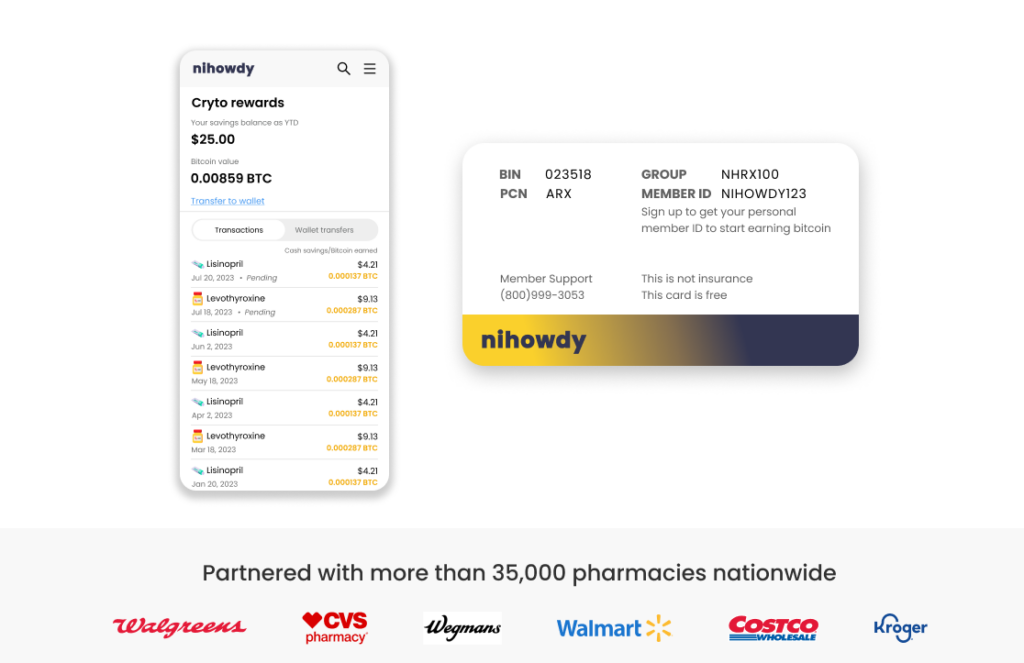Top Effective Nasal Sprays for Allergies: Your Guide to Relief


Suppose you’re looking for top-notch nasal sprays to alleviate allergy symptoms. In that case, this article will guide you through the different kinds available—steroids, antihistamines, and decongestants—and explain how they reduce sneezing, congestion, and other discomforts. Gain insight into choosing the appropriate spray for your condition and understand the most effective ways to utilize these sprays.
Key Takeaways
Nasal sprays, such as steroid sprays (e.g., Flonase, Nasacort) and antihistamine sprays (e.g., Astepro), can offer targeted relief from common allergy symptoms, including congestion and itching. Steroid sprays are particularly effective for ongoing management.
Correct usage and dosage are crucial for nasal sprays’ effectiveness. Long-term or incorrect use can lead to side effects like rebound congestion, especially with decongestant sprays limited to three days of use.
Prescription nasal sprays may be necessary for persistent allergies, and discount cards like NiHowdy can help make these medications more affordable. Combining nasal sprays requires careful consideration and consultation with the healthcare provider to avoid adverse interactions.
Understanding Nasal Sprays and Allergy Relief

Small and convenient nasal spray bottles are surprisingly effective in addressing allergy symptoms. These symptoms can include:
A congested nose
An itchy nose
Sneezing
A runny nose
Various types of nasal sprays are tailored to counter specific aspects of allergic reactions. Steroid nasal sprays particularly excel in easing:
Nasal congestion
Itchy noses
Sneezing fits
Runny noses
Tearing eyes that also itch
Products like Flonase Allergy Relief contain ingredients that curb inflammation, helping you breathe more easily and comfortably during periods of heavy allergy activity.
Other varieties, such as Cromolyn-based nasal sprays, stop the secretion of substances that cause inflammation from cells responsible for allergic responses. For effectiveness, these need consistent usage over time. Therefore, finding the most suitable spray is crucial, depending on individual requirements.
Steroid-based nasal sprays stand out due to their superior efficacy to most other nostril-targeted allergy relief solutions.
The Role of Steroid Nasal Sprays in Managing Allergies
Nasal sprays containing steroids, like Flonase and Nasacort, mimic the body’s natural anti-inflammatory hormones to reduce inflammation typical in hay fever. They effectively manage a variety of allergic rhinitis indicators that can include:
congestion
sneezing
itching
swelling within the nasal channels
These sprays stand out for their ability to tackle multiple agents causing inflammation. For example, Flonase goes after an array of culprits, such as:
Histamines
Prostaglandins
Cytokines
Tryptases
Chemokines
-Leukotrienes
All these compounds contribute to common allergy symptoms, including a stuffy nose. Steroid nasal sprays curtail inflammation, a central approach to treating and preventing symptoms tied to allergies like nasal blockage and frequent sneezing.
How do steroid nasal sprays compare to other allergy management options—like antihistamine pills?
Steroid Sprays vs. Antihistamine Pills
Nasal sprays containing steroids can deliver allergy relief directly to the nasal passages, minimizing the systemic effects more common with antihistamine pills. These sprays concentrate their therapeutic effects on the needy areas without impacting other body parts.
Steroid nasal sprays may provide a broader spectrum of relief from allergy symptoms as they address various inflammatory agents, not just histamine. Antihistamines explicitly target histamine, but using steroids-based sprays helps suppress the broader inflammation often seen in allergic responses, enhancing their effectiveness in alleviating nasal allergy symptoms.
Understanding the Recommended Dosage
Steroid nasal sprays’ efficacy heavily depends on adhering to the correct dosage. A healthcare provider usually prescribes a certain number of sprays per nostril, and this prescribed amount can differ for adults compared to children. Users must follow these directions carefully or consult product labels to ensure they use the spray accurately.
Depending on one’s age, the recommended dosage regimen for steroid nasal sprays can range from a single spray in each nostril once daily up to twice with multiple applications throughout the day. The medication type and condition being addressed will influence this recommended frequency. Consistent use of steroid nasal sprays often yields optimal results, although healthcare providers may adjust depending on how severe an individual’s symptoms are.
Antihistamine Nasal Sprays: Quick Relief for Sneezing and Itchy Nose

Nasal sprays designed for allergies are vital in managing discomfort, with steroid nasal sprays ideal for sustained use. When immediate relief of allergy symptoms is necessary, antihistamine nasal sprays step forward as the solution. These specific types of spray utilize ingredients like azelastine and olopatadine to counteract allergic responses by blocking histamine receptors. They quickly combat issues such as itchy noses and sneezing.
For instance, Astepro’s antihistamine spray:
It is formulated with the active ingredient azelastine.
Provides swift symptom relief within just 30 minutes.
Offers continuous effects spanning 24 hours for all-day ease from symptoms.
Acts as a steroid-free alternative in combating allergy manifestations.
It lacks fragrances or alcohol, which makes it well-suited even for those with delicate noses or sensitivities.
It can be safely administered to children as young as six, making it versatile enough for young users suffering from allergies.
Decongestant Nasal Sprays: When and How to Use Them
Nasal sprays, particularly decongestant sprays, can effectively ease allergy symptoms by shrinking the blood vessels in the nasal passages and promptly reducing congestion. However, it’s essential to use these sprays with caution.
Continually using decongestant nasal sprays beyond three days is not recommended due to the risk of rebound congestion or rhinitis medicamentosa, an ailment in which congestion becomes chronic and increasingly severe. To prevent this, closely following the spray’s label instructions is crucial, which typically suggests limiting use to a duration between 3 and 5 days.
Navigating Side Effects and Usage Frequency
Nasal sprays can effectively alleviate allergy symptoms, but they may also lead to adverse effects such as a burning sensation, stinging, nose dryness, runny nose, or even sneezing—all of which could contribute to nasal discomfort. There are instances when more severe reactions occur, including an accelerated heart rate, dizziness, nausea-induced headaches, mood alterations, wakefulness issues, tremors, intense perspiration, and general feebleness.
Nevertheless, the likelihood of these side effects can be reduced by adhering strictly to the recommended instructions for spray use and avoiding overuse. Additionally, saline nasal irrigation techniques might improve the results obtained from medicated nasal sprays by helping remove allergens and irritants from the nose.
Prescription Nasal Spray Options for Persistent Allergies

At times, when allergies are relentless, over-the-counter nasal sprays might not be adequate for relief. Under these circumstances, a healthcare provider may recommend prescription alternatives. Some of the commonly prescribed nasal sprays include:
Beclomethasone
Ciclesonide
Fluticasone furoate
Mometasone
These steroid nasal sprays are typically advised as primary treatment options for ongoing allergy symptoms.
The expense associated with prescription drugs can pose an obstacle. NiHowdy’s discount card makes a difference by offering substantial discounts that make these necessary prescriptions more affordable for sufferers. Through NiHowdy’s program, one can receive up to 3% back in Bitcoin on every purchase made using their discount card—adding even more incredible value beyond simple cost reductions.
The financial advantages provided by NiHowdy’s prescription discount card help combat escalating costs within healthcare settings and thus serve as an essential asset in managing expenditures related to allergy treatments. If persistent allergies plague you, consulting your healthcare provider regarding potential prescription-based therapies, including powerful fluticasone-containing sprays or other similar medications, may be beneficial.
Combining Nasal Sprays: Is It Safe?
Mixing different nasal sprays might seem like an effective strategy to gain better control over allergy symptoms. Caution should be exercised as the simultaneous use of multiple nasal sprays can lead to heightened side effects or diminished efficacy.
Some nasal sprays with different active ingredients can be used simultaneously without adverse effects. Yet, it is crucial to seek advice from a healthcare provider before combining such treatments to ensure they suitably suit one’s specific allergic needs.
Each spray must be applied according to its prescribed schedule to prevent interactions between components and achieve maximum relief from allergy symptoms.
Seasonal Allergies and Year-round Solutions
Using nasal sprays daily can be incredibly beneficial if you’re grappling with allergic rhinitis throughout the year or during allergy season. For those who experience seasonal allergies, it’s advised to begin treatment with prescription nasal sprays one to two weeks before allergy season kicks in. This timing ensures that the spray is most effective when pollen levels peak.
Individuals confronted by persistent allergens such as pet dander and dust mites should integrate the regular application of nasal sprays into their routine to manage these triggers effectively. If you face both types of allergies—seasonal and non-seasonal—it’s crucial for consistent relief that you adhere strictly to usage instructions so the efficacy lasts around the clock.
Tailoring your use of nasal sprays based on whether your allergies are due to seasonal or perennial sources can vastly enhance life quality for sufferers battling allergic reactions from various triggers.
Additional Tips for Managing Allergy Symptoms
Besides nasal sprays, adopting alternative tactics to control allergy symptoms is beneficial. A prudent approach involves actively determining and steering clear of allergens—like remaining inside during breezy, arid conditions and bathing following outdoor exposure.
Enhancing air quality in your home is another valuable method for alleviating allergy symptoms. You can achieve this by utilizing air conditioners, installing high-efficiency particulate filters, and cleaning with vacuums equipped with HEPA filters. Should allergies continue despite home management efforts, seeking advice from a healthcare provider is recommended. They can conduct tests to pinpoint exact triggers and propose specialized treatment options.
Summary
In conclusion, nasal sprays offer an effective solution to managing allergy symptoms—several options suit different needs, from steroid and antihistamine nasal sprays to decongestant sprays. For persistent allergies, prescription nasal sprays may be necessary, and NiHowdy’s prescription discount card can help make these more accessible and affordable.
However, using these sprays properly is essential to avoid side effects and ensure effectiveness. Always consult with a healthcare provider before combining nasal sprays or if symptoms persist despite efforts to manage them at home. Remember, managing allergies is not just about symptom relief but also about improving your quality of life. So don’t let allergies hold you back. Take control and breathe easy!
Frequently Asked Questions
Can I use multiple nasal sprays at the same time?
It is advisable to seek guidance from a healthcare provider before simultaneously utilizing various nasal sprays to prevent possible interactions and adverse reactions.
What is the difference between steroid sprays and antihistamine pills?
Steroid sprays are adept at delivering focused relief from allergies as they address a more comprehensive array of inflammatory agents than antihistamine pills, enhancing their effectiveness in controlling allergy symptoms.
How can I minimize the side effects of nasal sprays?
To minimize the side effects of nasal sprays, it is essential to follow the correct usage guidelines and avoid using them excessively.
You can also consider using saline nasal irrigation to rinse out allergens and irritants.
How can I manage my allergy symptoms apart from using nasal sprays?
Before employing nasal sprays for allergy symptom relief, it is beneficial to pinpoint and avoid allergens, enhance the air quality within your home or office, and seek advice from a healthcare provider about specific treatment options.
By taking these measures, you can more efficiently control your allergy symptoms.
Can nasal sprays help with both seasonal and year-round allergies?
Indeed, nasal sprays have the potential to alleviate both seasonal and perennial allergies if utilized regularly and according to instructions.


